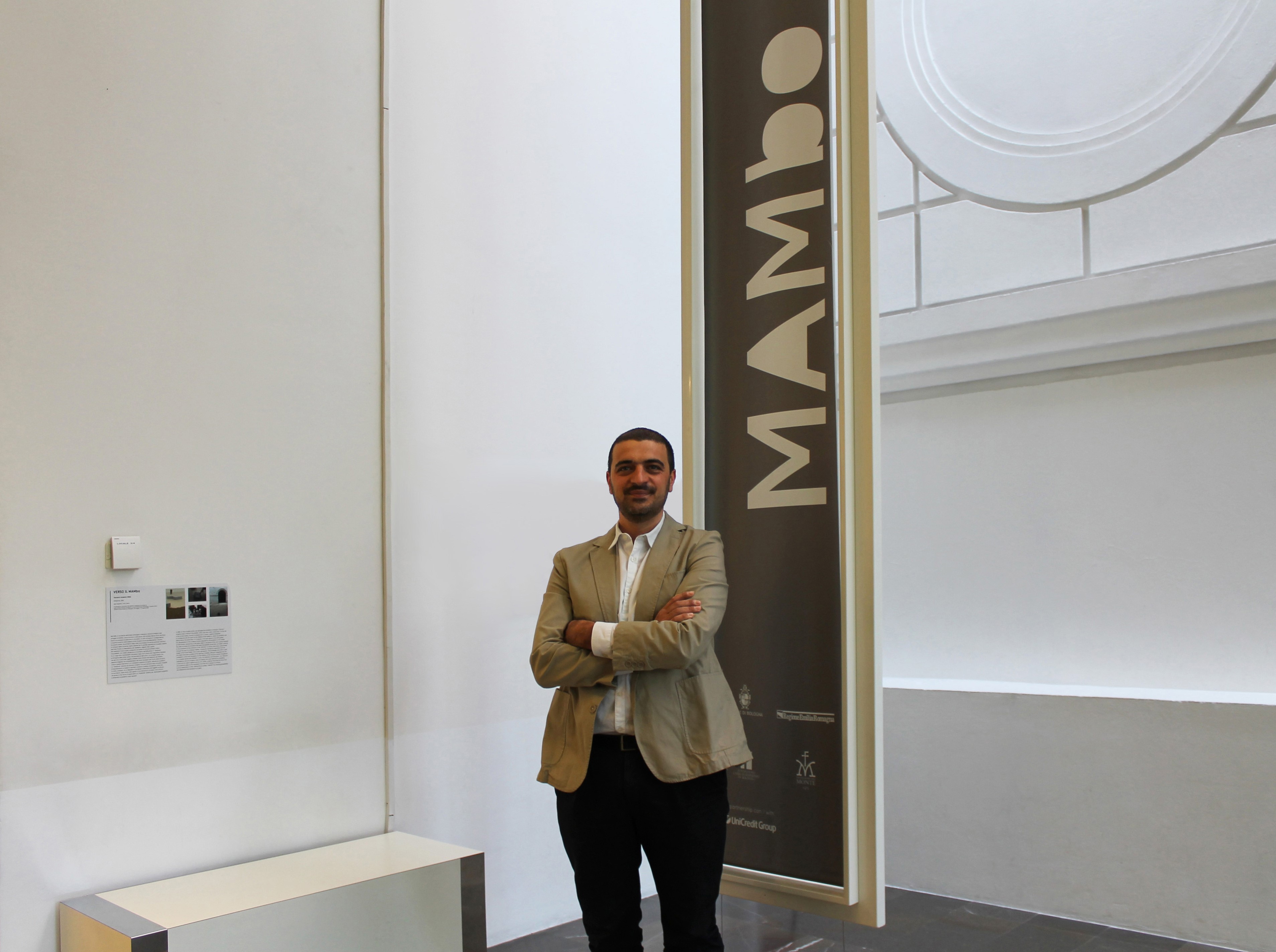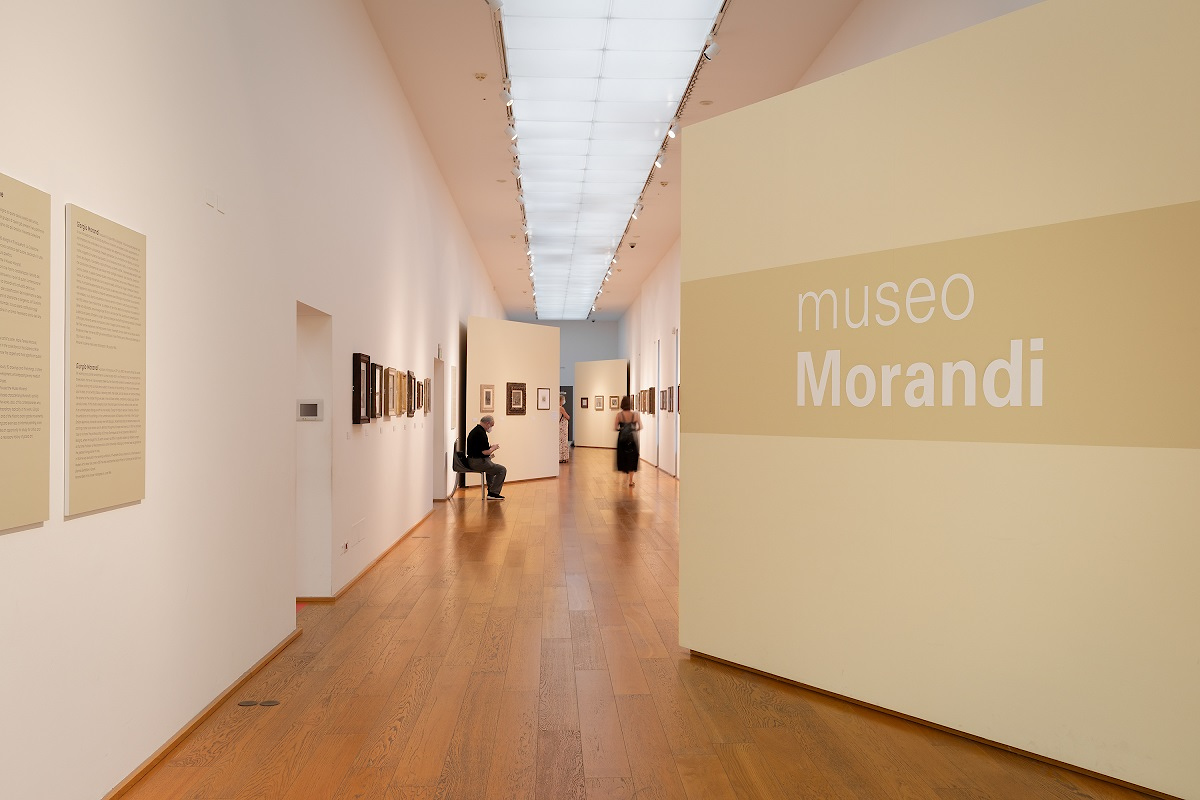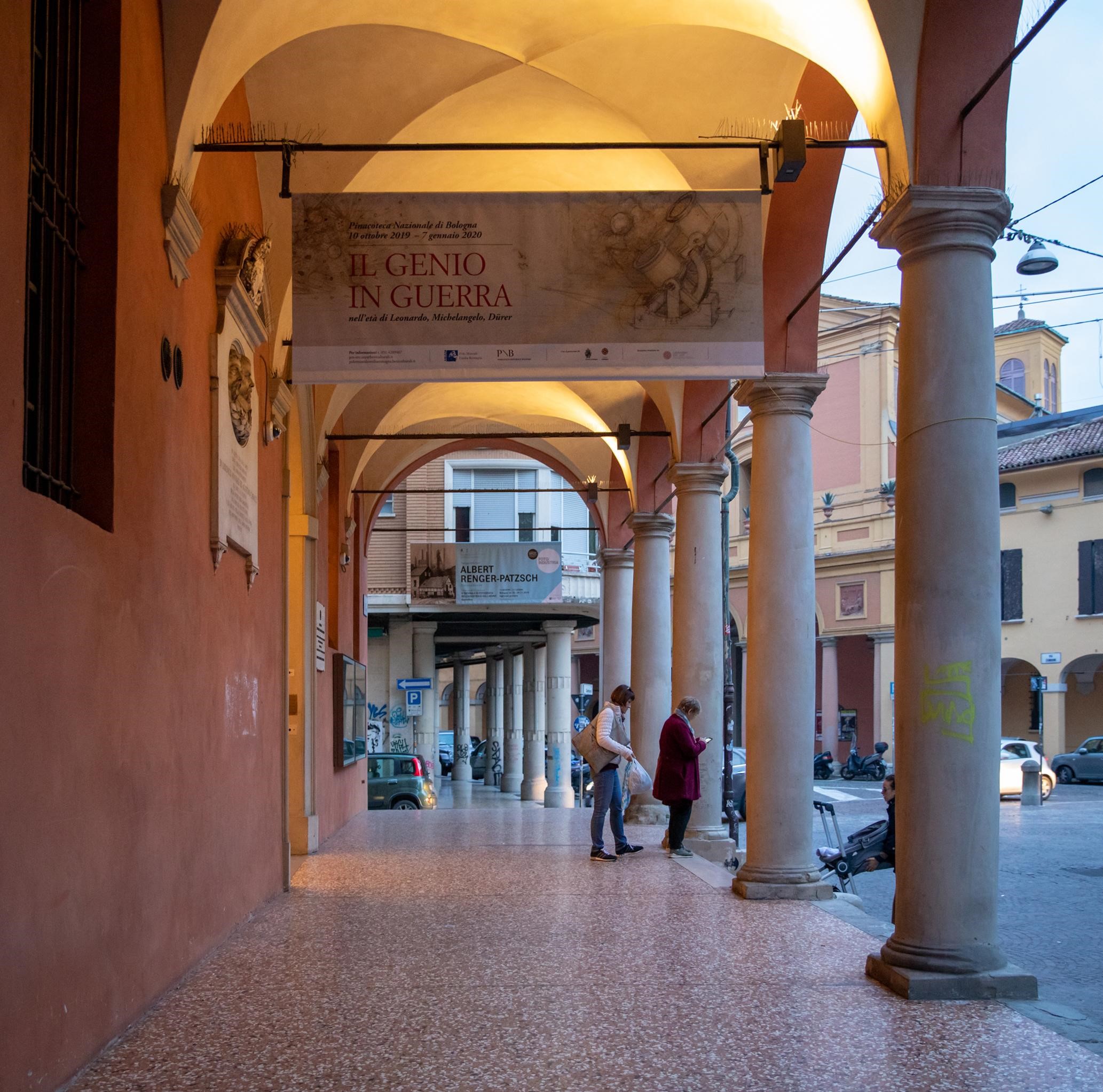In the footsteps of Giorgio Morandi
Updated on 12 May 2021 From Bologna Welcome
 In this promenade, we will be accompanied by…
In this promenade, we will be accompanied by…
Lorenzo Balbi, since 2017 art director of the MAMbo Modern Art Museum.
Like any self-respecting itinerary seeking to retrace the life and works of the great Bolognese artist Giorgio Morandi, this journey starts from the world’s most complete collection of his artworks, the Morandi Museum, currently hosted inside the former halls that were once used as bread furnace within the spaces of the MAMbo Museum. His famous still lives can be admired here, together with an extensive collection of peaceful landscapes, engravings, drawings and watercolours, highest expression of the Italian Twentieth Century.

© M. A. Ghilardi
After leaving the historic building in via Don Minzoni and before visiting the artist’s house of via Fondazza, we stop off at the Accademia di Belle Arti, where Morandi taught etching techniques from 1930 to 1956, and where his original printing press is still today used by the Academy’s students. Just next to the Academy, don’t miss the National Gallery, where Morandi would often study some of the Bolognese canvases of the 17th century, with peculiar regard to those painted by Guido Reni.

Ascending along via Zamboni and walking past the many historic seats of the world’s oldest university, you first reach Piazza Aldrovandi and the four-sided portico of the adjacent Church of Santa Maria dei Servi, to which Morandi was particularly attached and where he used to admire a precious panel with a Madonna by Cimabue, before crossing the central Strada Maggiore and finally heading towards his house in via Fondazza. Morandi’s House, the climax of our trip, is located at number 36 of this low-porticoed street, and once hosted the artist, his mother and his three sisters from 1910 until his death in 1964.
To end our experience on a high note, we should definitely visit the Apennine town of Grizzana, less than an hour from Bologna, where the artist would spend the summer months with his family since 1913. It was only in 1963 that Morandi had a house built there, with a sober and bright studio, well-lit by a series of windows through which he could behold and portray the surrounding landscape. Here, in this small and grim hamlet, apparently frozen in time, the artist’s house and studio have remained unchanged, with every room and every object preserved as Morandi and his sisters left them. Still today, it is possible to stroll along the same trails that would once be walked on by the artist, and to enjoy the typical harsh and dry nature of Grizzana, which, according to the artist, mirrored his timid and introverted temperament perfectly, reflected in turn through the clean and raw air of his contemplative paintings.
© Elisa Maria Cerra